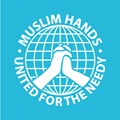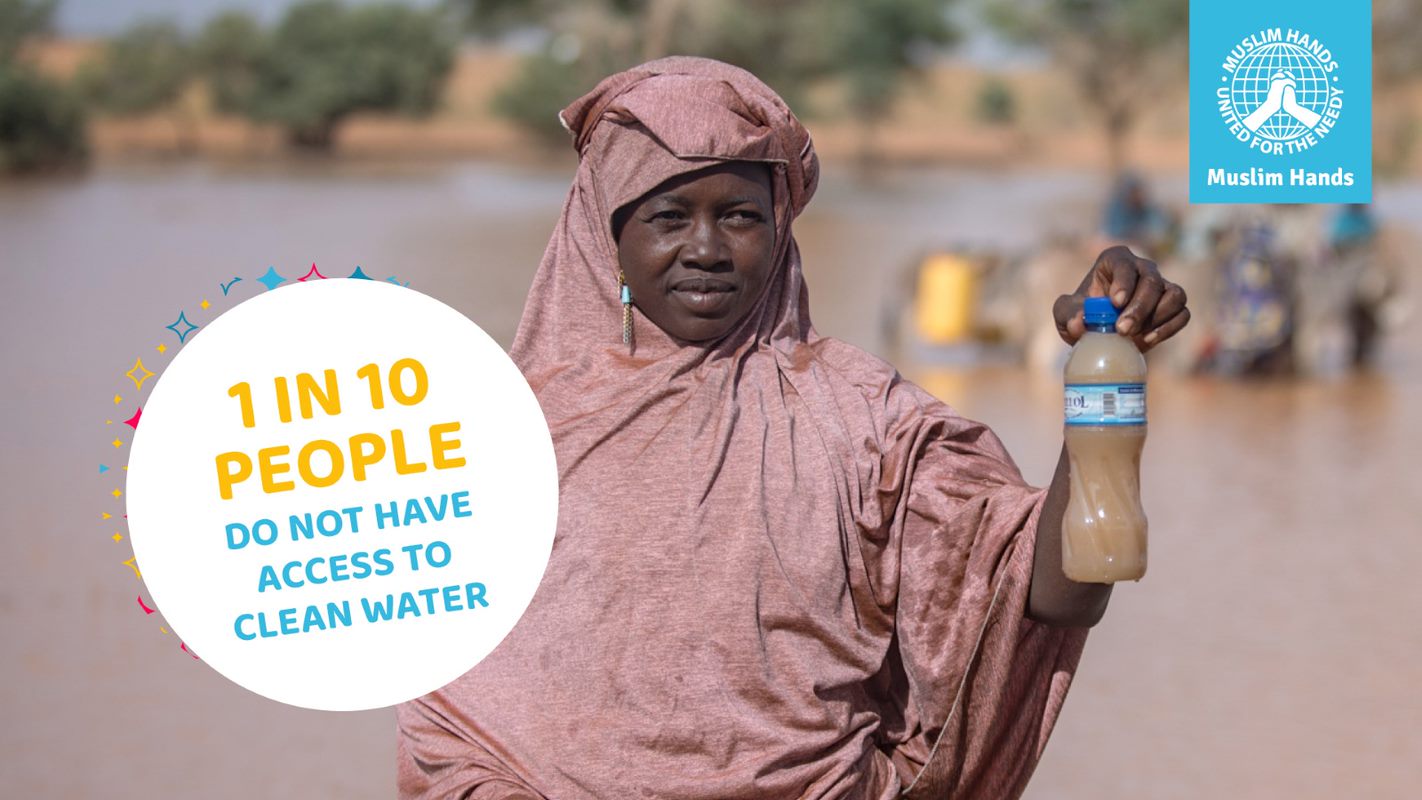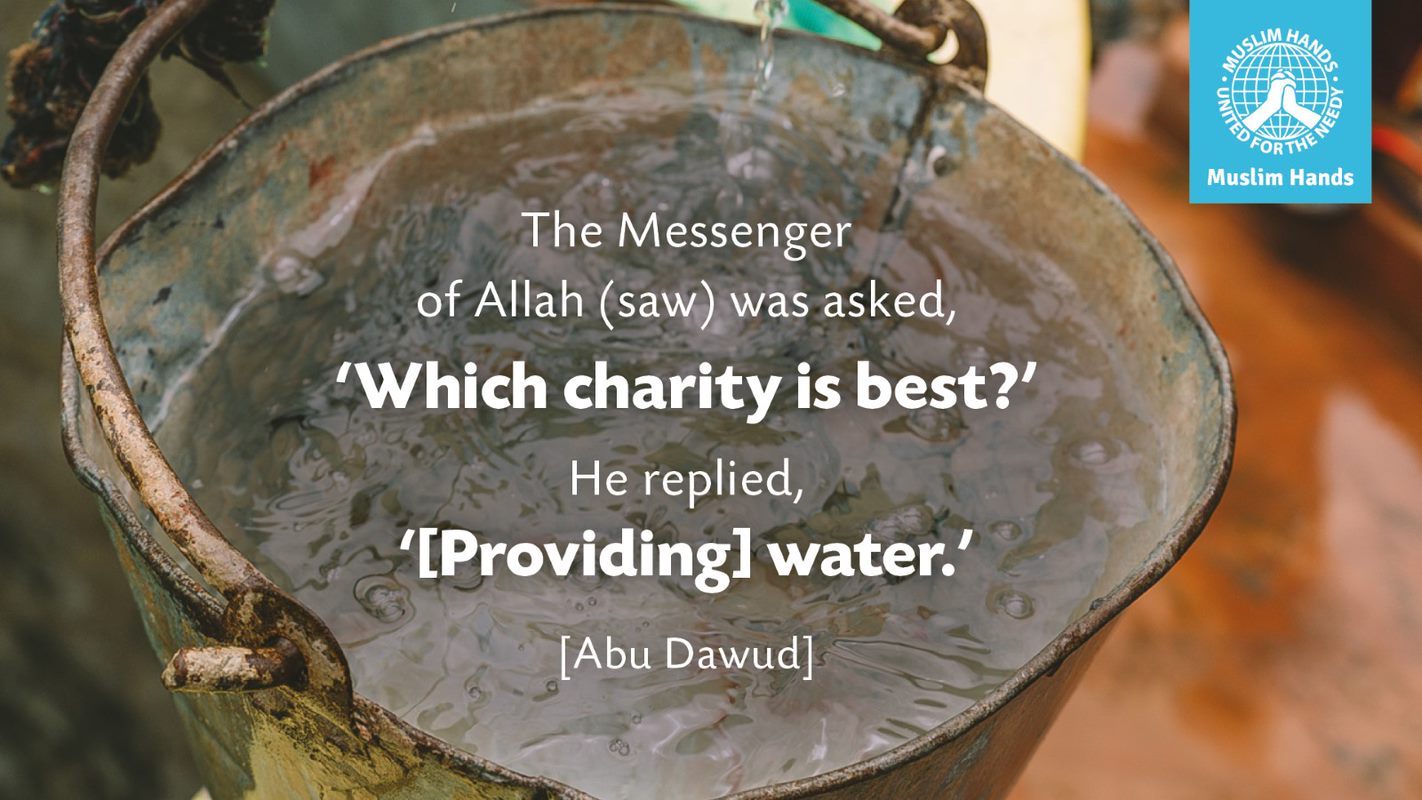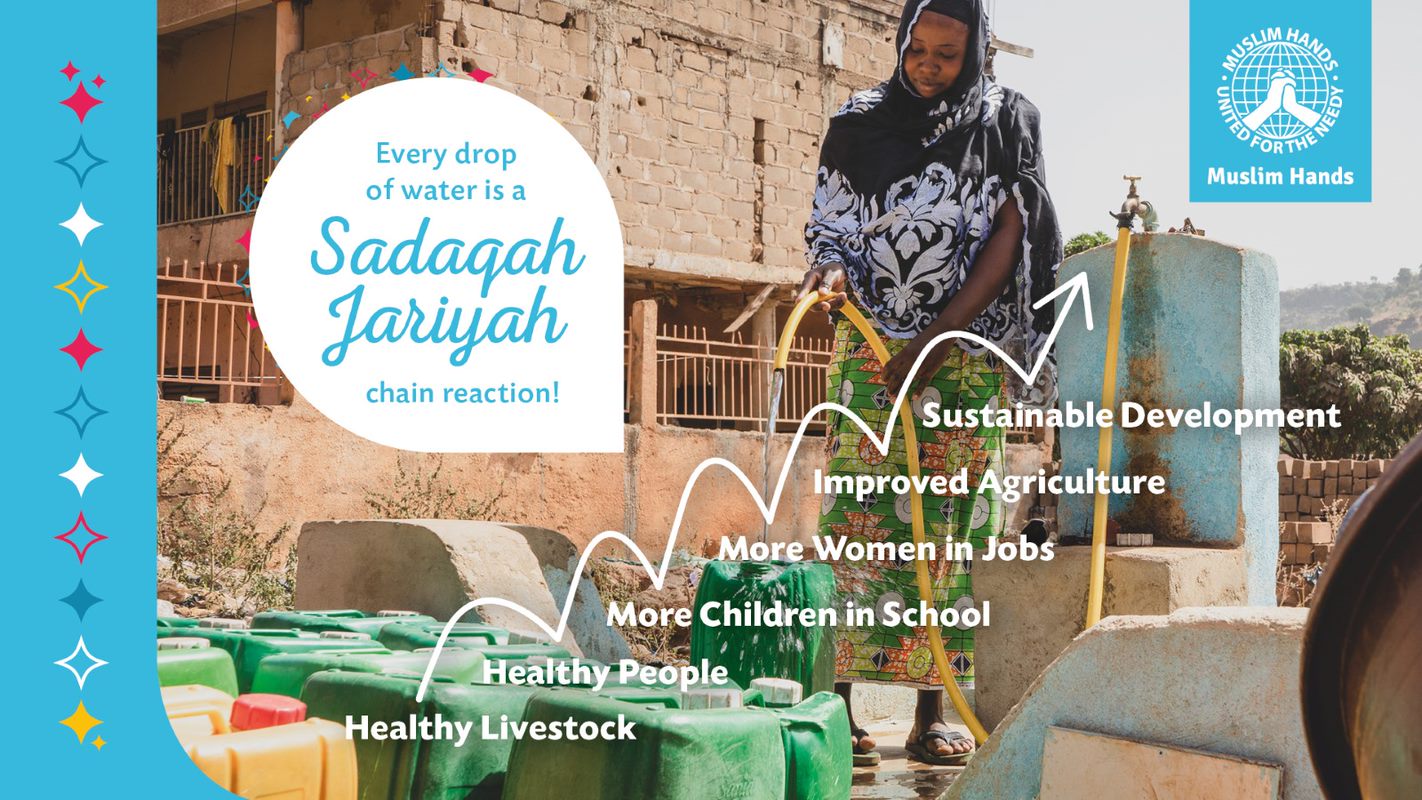Welcome to Quench Their Thirst, a fundraising initiative dedicated to bringing clean and safe drinking water to rural communities in need. You will be part of our team of fundraisers helping us build wells for rural communities in Africa and Asia.
Water is essential for life, yet millions of people around the world do not have access to clean drinking water. Every day, people, especially women and children, must walk for miles to collect dirty water that can make them sick.
Building a water well can change all of that. With your help, we can provide a source of clean and safe drinking water to communities that desperately need it.
Setting up a fundraising page is easy and we are on hand to provide support every step of the way. Just email us on events@muslimhands.org.uk or call on 0115 9117222 (2013) to speak to our team. We will also be sharing helpful tips, advice and resources every week, to help you maximise your fundraising this Ramadan.
The Prophet (saw) said, Whoever directs someone to do good will gain the same reward as the one who does good. (Muslim)
By setting up your page and sharing with family, friends, and colleagues, you are inspiring those around you and sharing in the reward of every single donation that is made.
Not only that, but you will be calling people to give the best charity
Imagine the impact that you will have by building a water well. You can help a community break free from a cycle of poverty, illness and struggle that comes with a lack of access to clean water. You can give children the chance to go to school, and women the chance to work and provide for their families. You can provide a source of hope and a brighter future for generations to come.
We invite you to join us in this important mission. Together, we can Quench their Thirst and make a real difference in the lives of people who need it most.
Please note: For those fundraisers who are unable to raise the amount for a well in nine months, the money you have raised will still be used to support our clean water projects around the world.
For just £190, you can gift a tube well/hand pump, which are manually operated and can lift water from about 30 metres beneath the ground. They are designed to last at least 10 years and can be easily maintained by the beneficiary. These wells The wells are located in convenient locations, often between a cluster of houses.
Locations available: Pakistan, Kashmir (India) and Bangladesh
For just £660, you can the gift of a Dig-a-Well can serve up to 200 people, providing access to clean water for drinking, washing, and cooking, as well as keeping livestock hydrated. On average, these wells serve up to 35 families.
Locations available: Afghanistan, Gambia, Kashmir (India), Mali, Niger, Pakistan, Senagal, and Sri Lanka
For £2000, you could build a solar-powered mini borehole well, in Pakistan, which will provide access to clean, safe water even when electricity isnt available. These will be built in strategic locations such as next to mosques and schools to ensure the whole community has easy access to them. Each well comes with its own water storage tanker and serves over 100 families.
For just £2600, you can build a community water well, which can serve more than 1,000 people. They are often located in arid areas where water is particularly scarce.
Locations available: Gambia, Kashmir (India), Mali, Niger, Pakistan, Senegal, Somalia and Sudan
For £7000, you can gift a solar-powered borehole, which will provide clean, safe water accessed from deep underground for up to 3,000 people a day. The borehole will be attached to solar-panels so it can be operated, even when there is no electricity available and the water will be piped through to taps located in different areas of the village.
For £8000, you can gift a solar-powered borehole in Mali, which will provide clean, safe water will be accessed from deep underground for up to 3,000 people a day. The borehole will be attached to solar-panels so it can be operated, even when there is no electricity available and the water will be piped through to taps located in different areas of the village.
 Organised by Muslim Hands
Organised by Muslim Hands

